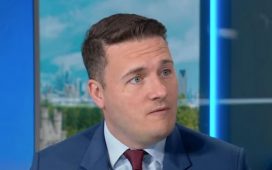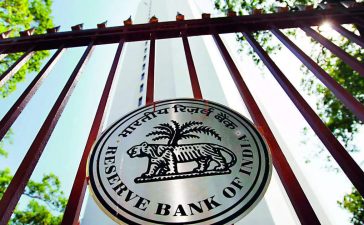An MP who resigned from government last year has said that he quit because he could not afford rising mortgage repayments on his £120,000 ministerial salary.
George Freeman said that an increase from £800 to £2,000pcm in his mortgage payments from this month was one of the reasons why he resigned during the cabinet reshuffle in November.
The MP for Mid Norfolk, whose most recent role was as science minister, cited the figures in a Substack blog post last week in which he wrote: “Why did I stand down?”, with one of the reasons being “because my mortgage rises this month from £800pcm to £2,000, which I simply couldn’t afford to pay on a ministerial salary.”
He added: “That’s political economy 2.0. We’re in danger of making politics something only hedge fund donors, young spin doctors and failed trade unionists can afford to do.”
He said five frontbench roles under five prime ministers had also left him “exhausted, bust and depressed”.
Freeman, who has been an MP since 2010, would have been receiving an annual salary of about £118,300 before deductions such as national insurance and taxes.
The MP was left with financial overheads after a divorce from his wife, a lawyer from whom he separated in 2014. He is paying maintenance costs for his two children and their educational costs.
He held a number of ministerial posts in successive Conservative governments and benefited from severance payments after departing.
This included receiving £7,920 when he quit Boris Johnson’s government in July 2022, before returning to his role as science minister 16 weeks later under Rishi Sunak, according to Labour analysis.
Ministers under the age of 65 are entitled to a loss-of-office payment amounting to a quarter of their ministerial salary if they leave their role and are not appointed to a new one within three weeks.
After leaving government, which he described as a “cruel mistress”, Freeman wrote in his blog that he now had the “greatest freedom of all – to speak and write and talk openly about what I’ve learnt”.
However, on top of his MP’s salary of £86,584, he is now also free to take on lucrative second jobs, subject to approval by the anti-corruption watchdog the Advisory Committee on Business Appointments (Acoba).
Notwithstanding his own overheads, the MP is likely to be in a very different situation to many homeowners across the UK who are facing a £19bn increase in mortgage costs as millions more fixed-rate deals expire and borrowers are forced to renegotiate their home loans in the wake of the toughest round of interest rate increases in decades.
Up to 1.5m households are expected to reach the end of cheaper deals in 2024 – with an increase in annual housing costs of about £1,800 for the typical family, according to analysis undertaken by the Resolution Foundation thinktank following Liz Truss’s disastrous mini-budget in September 2022.
When Freeman’s comments were put to the prime minister’s spokesperson, who was asked if Sunak was paying his ministers enough, he said: “There are ways for which both MPs’ and ministers’ pay are set and there are no plans to change that.”
“It is right that we ensure ministerial pay reflects the wider fiscal situation,” he added.











